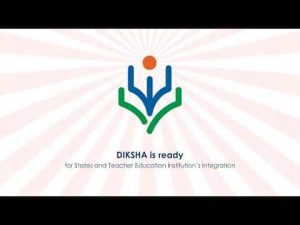UTTARAKHAND
- Cabinet nod to bring 7% more of Uttarakhand’s rural areas under urban local bodies
- Ahead of elections in 35 urban local bodies (ULB) of Uttarakhand next year, the cabinet, on Wednesday, approved inclusion of an additional 7% of the Himalayan’s state rural areas under jurisdiction of the ULBs. Officials confirmed that the ULBs will be empowered to take complete charge of 355 villages while they will take partial charge of 11 other hamlets in the state.
- At present, 70% of the state’s total area is considered rural while 30% is urban. However, with the cabinet nod, the urban coverage will go up to 37% and areas considered rural will be 63%.
- In a slew of various other decisions taken by the state cabinet, the government also decided to lower administrative charges during acquisition of land for national highways by half.
In addition to it government also took following actions–
- Gave nod to give loans of up to Rs 1 lakh at an interest of 2% to state’s farmers, a promise that was made by chief minister
- To opt for e-tendering processes in a bid to check illegal mining, financial assistance to clear farmers’ sugarcane dues,
- Direct Benefit Transfer (DBT) for beneficiaries of the state food policy,
- Permission to Uttarkhand rail metro board to take its own financial and administrative decisions,
- Revised salary pay to power department employees as per the recommendations of the seventh pay commission and
- Providing a 6.07 hectare land for Eklavya Adarsh Awasiya Vidyalaya, Bazpur in Udham Singh Nagar district.
- The state cabinet also gave green signal to the Uttarakhand Awas Niti scheme, 2017, which aims to provide homes for each family by 2022.
INTERNATIONAL
- United States of America proposes new sanctions against North Korea
- United States of America (USA) proposed a range of new sanctions against North Korea, including an oil ban and a freeze on leader Kim Jong-un’s assets.
- They drafted a UN resolution in response to Pyongyang’s latest nuclear test which will be considered by members of the UN Security Council.
- The draft calls for bans on supplying a range of oil products to North Korea and purchasing its textile exports.
- India, Myanmar sign eleven MoUs in a range of sectors

- India and Myanmar have signed 11 Memoranda of Understanding (MoUs) agreements in a range of sectors, including one on maritime security cooperation.
- The 11 MoUs also includes one between the Election Commission and Union Election of Myanmar, the national level electoral commission of Myanmar.apart from this some important are, MoU on Maritime Security Cooperation and Mou for Cultural Exchange Programme for the year 2017-2020.
NATIONAL
- IPL Media Rights To Star India

- Indian Premier League (IPL) media rights for the next five years have been awarded to Star India.
- Star India won the bid held in Mumbai for various media rights of the league at Rs. 16,347.50 crorefor the period of 2018 – 2022.
- For each IPL match BCCI will get Rs. 55 crore compared to Rs. 43 crore for each international match that India plays.
- Media rights consist of TV and digital rights for various segments namely India, Middle East, Africa, Europe and America.
- The previous bid was won by Sony in 2008 for 10 years at Rs. 8200 crore.
- Vice president launched Diksha Portal
- VP Naidu launched DIKSHA, a national digital infrastructure for teachers.

- Through this portal, all teachers across nation will be equipped with advanced digital technology. Key facts Diksha portal will enable, accelerate and amplify solutions in realm of teacher education. It will aid teachers to learn and train themselves for which assessment resources will be available.
- The portal will help teachers boost their teaching skills and create their own separate profile with their skills and knowledge.
- HDFC Bank listed in Domestic Systemically Important Banks.

- The Reserve Bank of India listed HDFC Bank as a domestic systemically important bank (DSIB) under the bucketing structure identified last year.
- The additional Common Equity Tier 1 (CET1) requirement for D-SIBs already been phased-in from April 1, 2016, and will become fully effective from April 1, 2019.
- The requirement will be in addition to the capital conservation buffer.
Gk bit – DSIB
- Systemically important bank or a bank that is ‘too big to fail’, is one whose failure will have nationwide or worldwide repercussions. A bank failure is a scenario in which the bank or financial institution is unable to pay its depositors or fulfill its financial obligations.
- Systemically important banks are perceived as banks that are ‘Too Big To Fail (TBTF)’.
- RBI choose these banks as DSIBs Primarily because of their size. The RBI uses a methodology to determine whether a bank is systemically important or not on the basis of its size, inter-connectedness, substitutability and complexity. Such banks have been termed as domestic-systemically important banks (D-SIB).